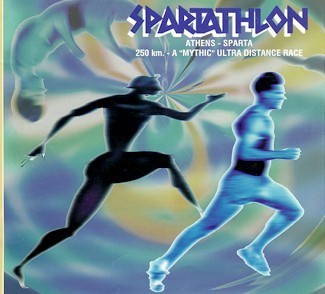A friend recently shared a link to Dr. James O’Keefe’s TEDx Talk from 2012, “Run for Your Life!” In it, the cardiologist discussed research that can be interpreted to show that endurance running can actually be bad for the heart. He said that exercise was an amazing drug but, like all drugs, there is an ideal dose range. “Fitness patterns for conferring longevity and robust lifelong cardiovascular health are distinctly different from the patterns that develop peak performance and marathon/superhuman endurance.” And I have to say, well, DUH.
Research versus Popular Misconception about Running Long Distances
For years, my dad has been telling me that running will “ruin my knees.” Now, he doesn’t care that this isn’t based on any scientific fact; it’s “common sense,” right? Wrong. A study published in Medicine & Science in Sports & Exercise looked at per-unit-distance loads to understand why most runners don’t develop osteoarthritis. What they found was that walking and running are virtually the same, when it comes to load (that’s the amount of impact from motion).
How can that be? While it’s true that more impact on the knees occurs when running, fewer steps are taken than when walking. The accumulated wear-and-tear from the increased amount of steps taken to cover the same distance while walking essentially equals the fewer steps at higher impact involved in running. So while I have science on my side, my dad remains skeptical.
O’Keefe’s talk and other articles crafted around this heart-based research are, in a sense, debunking the popular notion that running long distances is good for the body. The case is that extreme endurance training (which is described in a study as including training rates of more than 25 miles per week, at 7:30 mile paces, and running seven days a week) affects the heart negatively, as shown through increased troponin levels, scarring, enlargement of the heart, and increase in plaque in the heart. In fact, a new medical term was coined: Phidippides [sic] cardiomyopathy.

I fall into the group that O’Keefe called out as veteran marathon runners, with more than 25 marathons in less than 25 years. I know a lot of folks who fit that bill. Have we been damaging our hearts through this passion?
Take it up a notch — as an ultra runner, I often covered about a marathon a weekend during peak training for trail races of 50 miles or more.
And then there’s Ironman-distance triathlon training, with rides of five hours or more on weekends, combined with hours-long runs.
Is this passion for extremes going to do us all in? Is it a misconception that running keeps us healthy? Should athletes give up endurance events?
Apples and Oranges: Training vs. Maintenance in Endurance Running
O’Keefe’s research shows that light to moderate exercise is good for heart health, and the more, the better. Runners do live longer, especially when they average 5 to 20 miles at a 10:00 mile pace over two to five days of workouts per week. And damage done to the heart by hard, long distance can be repaired and undone. That’s all good information to have and apply to life-long running, what I call maintenance. But the science has to be tempered within the context of training.
The more accurate message is that hard training for extremely taxing endurance events shouldn’t be done solely for health reasons.
And therein lies my “duh” comment. Does anyone say to a prima ballerina, “Honey, I don’t know why you’re dancing when you know it’s hard on your feet”? That athlete is taking a skill that may have begun as a purely fitness-focused activity to a different level, a level where the focus is on challenge and perfection of effort and movement, not life-long maintenance.
While I’m no prima ballerina, Olympic runner, or professional boxer, I select goal events and take on training in order to achieve in my sport, whether through distance, speed, or new levels/intensities. I do so in spite of the toll or changes training may exact upon my body.
For example: I don’t exercise as a method of weight loss. I exercise and fuel so that my body can perform appropriately. In the case of boxing, this has actually made me look bigger; over two years, I’ve developed muscles that lifted my bust (hello, girls!), broadened my shoulders, and increased the girth of my arms. If the purpose behind my exercise were solely to be thin, I’d have quit a long time ago. The exercise I do to maintain my health and the exercise I undertake for a goal event are apples and oranges; both have a great place in a healthy diet, and well-rounded nutrition includes balance.
Working in Rest and Recovery
A successful endurance athlete knows that rest and recovery must be built into any training schedule. Down time is when the magic behind training occurs, when adaptation takes place, when strength develops. I think the better message from Dr. O’Keefe’s talk is for endurance athletes to be aware of the physical tolls on the heart and plan rest accordingly. We can’t have all our cake and eat it, too; for every event comes necessary recovery (and 100-milers, that doesn’t mean doing an Ironman as “off season”). And couch potatoes — don’t take the easy opt-out by dismissing long-distance runners as crazy and quoting science as a pass to get out of exercise.
As in everything, the aim is to work smarter, not harder.
http://tedxtalks.ted.com/video/Run-for-Your-Life-At-a-comforta/player?layout=&read_more=1

